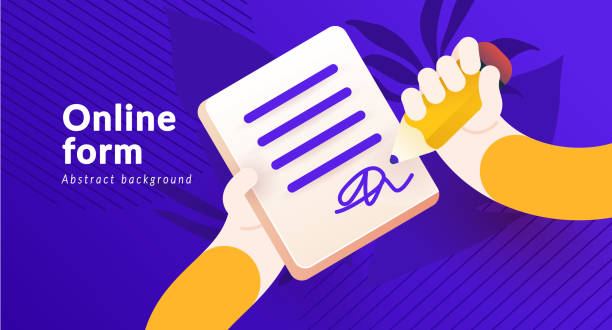Sales organizations are under increasing pressure to boost rep productivity while ensuring uniform quality across scattered teams. The first 90 days determine whether new personnel become consistent revenue drivers or become costly leavers within the first year. Most businesses lack systematic techniques for measuring sales competencies during this vital phase, instead relying on intuition and informal observation.
Like an old internet saying goes, modern problems require modern solutions. So, modernLMS sales completely change the way companies detect skill gaps, personalize training interventions, and track progress toward preparedness.
Conventional sales onboarding in recent years has systematically overburdened new representatives. Boilerplate classroom instructions are simply leaving new recruits without critical skills. It gets even worse with seasoned workers, as the information overload leads to total frustration. As a result, managers struggle to determine when representatives are prepared for client encounters, which often leads to problems.
Modern training must focus on things that need to be improved and developed. It's totally pointless to try to improve capabilities that people are already proficient in. This is where skills evaluations come in handy. Reps at companies that use structured evaluation tools attain full revenue responsibility 3–4 weeks sooner, resulting in a 22% quicker time to productivity.
Using baseline assessment data makes it simpler to calculate the return on investment (ROI) of sales training. When implemented right, Organizations can observe gains in representative performance before and after focused training. An insurance business, for example, discovered that assessment-driven, tailored training increased onboarding income by $1.3 million per year, which paid for the program in only eight months.
Because customized development keeps reps engaged longer than one-size-fits-all training, this strategy also lowers attrition. Since it may cost 50–200% of a sales representative's yearly salary to replace them. Thus, improving retention is the key to success.
Competency-based testing and knowledge evaluations are two examples of sales skills assessments. The key here is to pick the type of questions in the assessments that would work best for your exact case. Opt for platforms with diverse multiple-choice questions, with numerous other options. Thus, you will make sure that representatives understand important ideas like product specifications and sales tactics.
Human labor is costly and time-consuming; in turn, AI-powered assessment systems look for important behaviors, such as verifying customer needs or posing discovery inquiries. By lowering prejudice, this automated rating increases dependability.
Plus, AI is great at ensuring transparency in scoring is critical; when representatives can see how they were evaluated and pinpoint specific times when they succeeded or suffered, they are more likely to respond to criticism.
For example, you can use AI to provide timestamped feedback to alert salespeople when they missed opportunities to ask clarifying questions. This significantly increases volunteer coaching requests.
Real-time feedback promotes learning by delivering instant performance data. Changes and adjustments to the fresh experience work best and allow for a greater impact.
The LMS offers coaching recommendations based on identified gaps, helping managers focus their feedback. Dashboards that track skill progress let reps see precise advancements, like a discovery questioning score rising from 65% to 79%, while highlighting areas for improvement, such as a 52% close rate.
Remember that effective skill evaluation systems prioritize the core qualities. Also, it's important to distinguish great performers from average ones, but keep in mind that you should not mistake this for public acknowledgment.
Here we are talking about finding strengths and weaknesses to address them and let all your team members grow. A commercial real estate agency found that successful agents excelled in market knowledge, relationship-building, and negotiation—rather than advanced tech skills.
Scenario-based assessments are most effective when they reflect real customer interactions, like budget concerns or competition. For example, a B2B technology business can use scenarios based on typical objections in their field. These assessments will be far more accurate in forecasting performance than generic modules. Branching logic, in which reps' decisions alter the situation, increases variety while preventing memorization.
Integrating assessment and training is most effective when the learning content directly addresses the specific deficiencies. Thus, you make sure that it addresses the issues directly, without wasting any resources.
The best option is to opt for tailored microlearning, rather than broad, one—size—fits—all courses. For example, consider a fast 12-minute instruction on timeline discovery, followed by a scenario-based exercise. All this must be based on their specific requirements. This closed-loop technique reduces superfluous training. Finally, it helps to ensure that reps receive the correct support at the appropriate moment.
Adaptive learning engines customize training by modifying content depending on ongoing evaluation. Thus, you help top performers to advance swiftly, while others receive targeted reinforcement to stay on track. Finally, evaluation data can also show group-wide gaps—for example, when 70% of new account executives struggle with executive presence, the issue is included in routine onboarding.
Remember, longitudinal tracking helps determine if reps maintain or lose abilities over time. Thus, if you want to provide appropriate refresh training when assessment data indicates regression, you need to put continuous effort.
Continuous assessment cycles:
AcademyOcean arranges LMS sales onboarding around ongoing evaluations.
Pre-onboarding diagnostics:
Each program begins with tests of baseline competency. This helps to distinguish representatives who already have prior experience or advanced skills.
Behavioral performance focus:
Assessments imitate real-world customer encounters
Immediate coaching feedback:
AcademyOcean uses AI and delivers tailored coaching after each scenario.
Real-world skill transfer:
This practical approach guarantees that reps implement learning abilities directly in sales discussions.
Reporting tools:
Managers can view dashboards that display individual growth, team skill distributions, and readiness metrics.
Strategic talent insights:
The data can be used for both personal coaching and organizational planning.
Continuous, data-driven development:
Sales excellence is dependent on tailoring training to changing needs.
Competitive advantage:
With AcademyOcean, companies see measurable performance boosts and increased retention.




Want to add a comment?